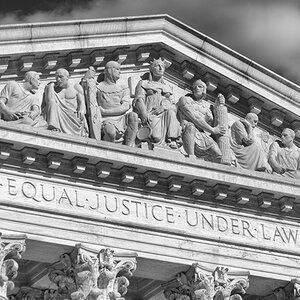COF, Independent Sector stand by Fearless Foundation amid ruling

The Council on Foundations (COF) and Independent Sector (IS) have announced their continued commitment to the Atlanta-based Fearless Foundation, following a U.S. federal court of appeals panel ruling to suspend a grant program that supports Black women business owners.
Fearless, which aims to combat underfunding in venture capital by providing grants and other tools to women of color, is facing a suit from the American Alliance for Equal Rights, led by conservative activist Edward Blum, claiming the foundation’s grant program for Black female entrepreneurs is racially discriminatory. In a 2-1 ruling, the U.S. Court of Appeals for the 11th Circuit ruled that the American Alliance for Equal Rights has standing to sue, and that the grant program, which provides $20,000 to businesses that are majority-owned by Black women, must remain suspended while the case proceeds in court.
Blum’s lawsuit claims the program violates section 1981 of the 1866 Civil Rights Act, which prohibits discrimination on the basis of race when enforcing contracts. According to the Associated Press, the Reconstruction-era law was enacted to protect formerly enslaved people from economic exclusion, but anti-affirmative action activists have been leveraging it to challenge programs intended to benefit minority-owned businesses.
Last December, COF and IS filed an amicus brief calling on the court to dismiss the lawsuit and rule in line with the First Amendment that philanthropies and individuals have a constitutional right to donate to charitable causes that align with their values.
“The court’s decision threatens the right of the charitable sector to address urgent, unmet needs and to strengthen communities nationwide in a diversity of ways,” said Independent Sector president and CEO Akilah Watkins. “In undercutting philanthropy’s basic First Amendment protection, this ruling makes it harder to support historically marginalized groups, and jeopardizes our work to promote equity and justice. Now, more than ever, our sector is called upon to advocate for equitable policies and systems that help us build a nation where all people thrive.”
(Photo credit: Getty Images/PeskyMonkey)






